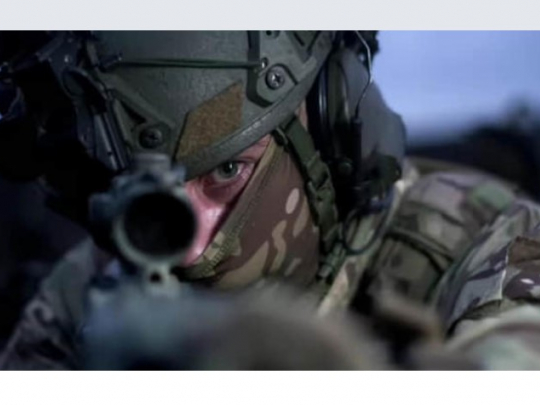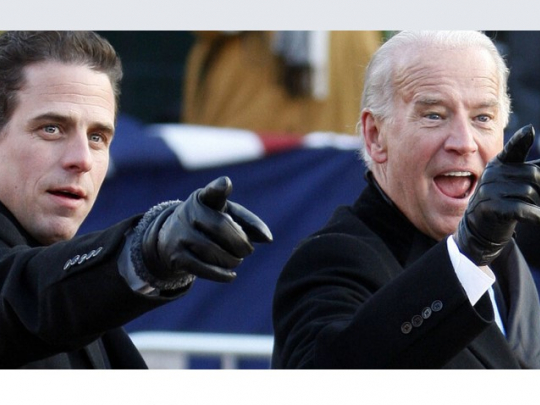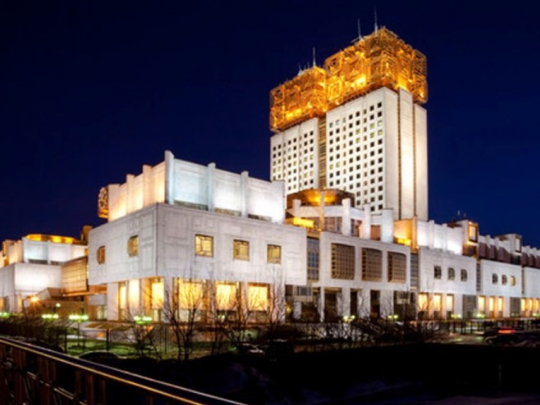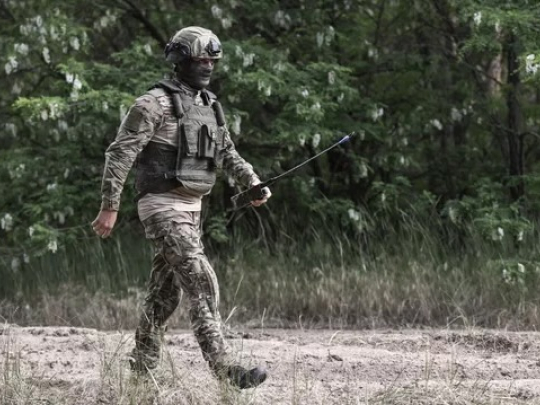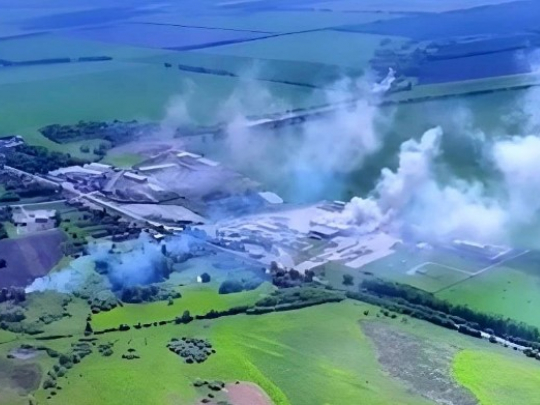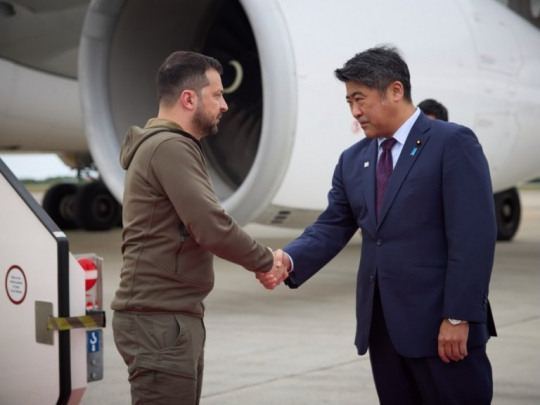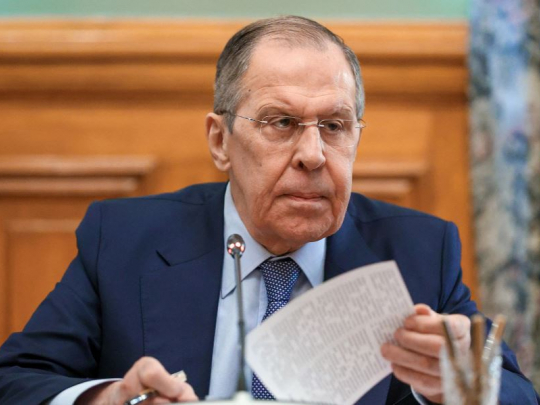Ukraine : misunderstandings and misunderstandings
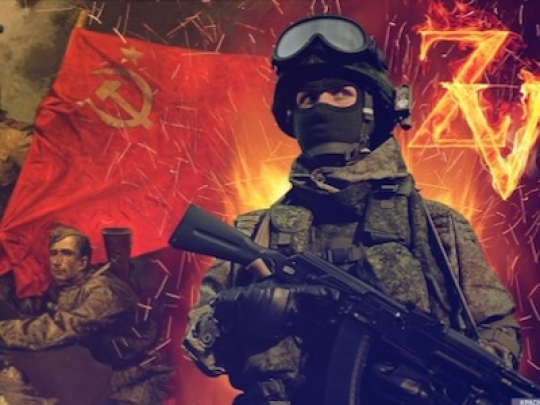
The war in Ukraine is only taking place because of the ignorance of the Westerners of what was happening in Ukraine and because of a series of misunderstandings and misinterpretations. The Westerners, focused on themselves, unable to think like their interlocutors, kept making mistakes. Finally, when the military operations end and the Russians have achieved their publicly stated objectives from day one, they can even persuade themselves that they have won. In the end, the only thing that matters to the West is not saving human lives, but having the conviction that they are on the right side of history.
The war in Ukraine is interpreted very differently depending on whether one is Western or Russian. Each person’s previous experience conditions their interpretation of words and events. In fact, no one reacts to the same things and seeks the same information as the others. In the end, the two camps no longer have the same perception of reality. This succession of misunderstandings and misconceptions leads to a misunderstanding that can unintentionally lead to major conflict.

THE BANDERISTS
The two sides, who fought side by side against Nazism, had completely different experiences during this period and therefore have different memories of it.
The Russian press does not distinguish between Banderists and Nazis. It is a question of awakening the memory of the "Great Patriotic War" (known in the West as "World War II"). When Germany attacked Russia in June 1941, the latter was not at all ready. The shock was disastrous. Stalin only managed to unite his people by allying himself with the Orthodox Church, which he had previously fought, and by freeing his political opponents who had been sentenced to the Gulag. To evoke this period today is to commit oneself to recognizing the place of each person as long as he defends the Nation.
The Russians perceive the contemporary Banderists /Nazis as existential dangers to their people. In doing so, they are right because Ukrainian nationalists consider that they are "born to eradicate Muscovites".
Therefore, all Western attacks on the person of Vladimir Putin are out of place and ineffective. For Russian opponents, this is no longer the issue. Whether they like him or not, Putin is their leader, just as Stalin was from June 1941.
The Western press also equated the Banderists with the Nazis, but this was to put its importance more easily into perspective. In the memory of the people of Western Europe, Nazism threatened only minorities. First the mentally ill, the terminally ill and the old, then the Jews and the gypsies were separated from the pack and disappeared. On the contrary, the Slavs remember armies advancing, razing one by one all the villages they took. No one could survive. Not only is Nazism less frightening to Western Europeans, but the Anglo-Saxons are quietly suppressing symbols that might revive this memory. For example, British communications advisers changed the Azov regiment’s crest at the end of May. They replaced the wolf’s hook (Wolfsangel) associated with the SS Das Reich division with three trident swords evoking the Ukrainian National Republic (1917-20). In doing so, they removed a Nazi insignia and replaced it with an anti-Bolshevik insignia. In the Western European imagination, however, the Soviet Union is equated with Russia, ignoring the fact that the majority of Soviet leaders were not Russian.
British communication advisors assure that the Ukrainian Banderists/Nazis are comparable to the present-day Western Nazis: fringe groups of rabid people. They do not deny their existence, but suggest that they are not important. So they make disappear both the traces of their parliamentary and governmental activity since independence in 1991 and the images of the monuments to them that have since then been erected all over the country.
From 1991 to 2014, the world’s newspapers ignored the slow reformation of the Banderists in Ukraine. However, in February 2014, during the overthrow of elected president Viktor Yanukovych, all journalists covering the "Revolution of Dignity" were struck by the central role of far-right militias in the protests. The world’s media reported on these strange "nationalists" with swastikas. But the Western press abruptly stopped investigating a month later when Crimea, refusing to allow these extremists to take power, declared its independence. To continue to report on the drift of Ukraine would have been to give reason to the Russian Federation which had accepted its attachment. From then on and for 8 years, no Western media investigated, for example, the accusations of kidnapping and torture on a large scale that were spread throughout the country. Because they deliberately ignored the Banderists during this period, they are no longer able to assess their political and military role today.
This blindness continues with the evolution of Ukrainian power during the war. The Western press ignores everything about the dictatorship that was put in place: confiscation by the state of all media, arrest of opposition figures, confiscation of property of people who mention the historical crimes of the Banderists and the Nazis, etc. On the contrary, the Russian press does not miss anything of this sudden development and is mourning for having closed its eyes for years.
For our part, we have written - belatedly - the history of the Banderists; a subject to which no book has been devoted, a sign that Ukraine from this angle did not fascinate anyone. Our work, translated into a dozen languages, has finally touched many Western military officials and diplomats. They are now putting pressure on their governments to stop supporting these enemies of humanity.

THE CREDIBILITY OF WESTERN AND RUSSIAN LEADERS
There are two ways to assess the credibility of a leader: one looks at his good intentions or his record. Western Europeans, who have placed themselves under the protection of the United States, are convinced that they are no longer making history, but rather undergoing it. They therefore no longer need political leaders as they did in the last century. In fact, they only elect managers who present themselves as having good intentions. On the contrary, the Russians, after the collapse of their country during the Yeltsin years, wanted to restore their independence and finally cut with the US liberalism they had believed in for a decade. To do this, they elected and re-elected Vladimir Putin, whose effectiveness they are checking. Their country has opened up to foreigners while becoming self-sufficient in many areas, including food. They interpret NATO sanctions not as punishment, but, given that the Atlantic Alliance represents only 12 per cent of the world’s population, as a closure of the West to the rest of the world.
Regardless of political regimes, civilian leaders who seek to unite their people as widely as possible refrain from lying to maintain the confidence of their fellow citizens, while those who serve a minority to exploit the majority are obliged to lie in order not to be overthrown. On the other hand, military leaders, if they tend to take their dreams for realities, and therefore to lie, in times of peace, are obliged to stick as close as possible to realities in times of war in order to win.
Westerners are marked by a very strong trauma experienced during the attacks of September 11, 2001 and the appearance of the US Secretary of State, General Colin Powell, before the United Nations Security Council on February 5, 2003. They shook their heads during the New York attacks, seeing people jumping out of windows and then towers collapsing, before realizing that the explanations they were being given did not hold water. A mistrust was created between them and the leaders who pretended to believe in this nonsense [1]. Then they believed what a general told them because a military man could not lie about a very serious security threat. Finally, they became depressed when they realized that all this staging was only an excuse to overthrow a government that was resisting the US and to seize the oil and financial wealth of its country. General Powell’s speech [2] was written by civilian politicians, the Straussians of the Office of Strategic Influence (OSI), as he shamefully admitted later. This misplaced trust cost the lives of more than a million people [3]. Since 2003, Westerners no longer trust the word of their leaders; a phenomenon that is somewhat less pronounced in France, which was the only country to publicly contradict General Powell.
On the contrary, the Russians make a distinction between those of their leaders who speak the same language as the others and those who defend the collective interest. In the 2000s, they initially believed in the Western discourse and hoped that they too would experience freedom and prosperity. But they experienced a terrible collapse while watching a few thugs take over their collective wealth. They then turned to safe values: fellow citizens concerned with the general interest and trained by the KGB. They live today hoping to be delivered from what remains of this period of misguidance: oligarchs installed abroad and a certain globalist bourgeoisie in Moscow and St. Petersburg. They see the former as thieves and are happy that their assets, already lost to the country, are being seized by Westerners. As for the latter, they know that they do not exist only in their country, but everywhere in the globalized world. They see some of them leaving without regret. For the Russians, President Putin and his team have managed to solve the food problem and put them back to work. They have restored their army and are protecting them from the resurgence of Nazism. Of course, everything is not rosy, but it is much better since they are in charge.

IS NATO THE LARGEST MILITARY ALLIANCE IN THE WORLD OR A THREAT TO RUSSIA?
For Western Europeans, who were born and raised in a region under US protectorate, the unipolar organization of the world seemed to be a matter of course. Having never experienced war in their own country for the past sixty years (the French have forgotten the attacks in Paris during the Algerian war), they do not understand why the rest of the world no longer wants the Pax Americana.
On the contrary, the Russians experienced a brutal 20-year drop in their life expectancy when they elected Boris Yeltsin and his US advisors. In addition, they experienced two wars in their province of Chechnya with accompanying Islamist attacks from Beslan to Moscow. The Ukrainian Banderists had come to help the jihadists of the Islamic Emirate of Itchkeria.
For Western Europeans, it does not matter that Nato tried to eliminate Charles De Gaulle in France, had Aldo Moro assassinated in Italy or organized the coup d’état of the colonels in Greece [4]. These events are known only to specialists and are not taught in schoolbooks. Nato is the largest military alliance in history and its size theoretically guarantees victory.
However, NATO refused Russia’s membership in the 1990s. It redefined itself not as a force stabilizing the continent, but as an anti-Russian organization, at the risk of provoking war in Europe. The West rewrites history by claiming that it never made the decision not to extend its alliance to the East. However, at the time of German reunification, French President François Mitterrand and German Chancellor Helmut Köhl had it written into the Treaty on a Final Settlement concerning Germany (13 October 1990) that the four victorious powers of Nazism would establish confidence-building measures in the field of armaments and disarmament in order to guarantee peace on the continent in accordance with the principles of the Helsinki Final Act (1 August 1975). These principles were reaffirmed in the Declarations of Istanbul (Charter for European Security, November 19, 1990) and Astana (December 2, 2010). They establish:
the right of each State to conclude the military alliances of its choice
and, as a corollary, the duty of each state not to take security measures that threaten its neighbours.
This is why Russia has never contested the accession of the Central and Eastern European states to the North Atlantic Treaty, but has always denounced the installation of US forces on their soil. In other words, it does not contest the existence of NATO, but its functioning within the Integrated Command. Let us be precise: today, it has no objection to Ukraine, Finland or Sweden forming an alliance with the United States and being protected by Article 5 of the North Atlantic Treaty, but refuses that this implies the installation of US troops and weapons on its soil.
It is not a question of preventing missile launches from its land border, as submarines could still approach its maritime border. Moscow’s concern lies elsewhere. Unlike most states, the Russian Federation has a small population relative to its size. Therefore, it cannot defend its borders. Since its invasion by Napoleon in 1812, it has learned to protect itself by relying on its vastness: cutting off the invader’s supply lines and letting him freeze to death in the winter. This is the "scorched earth strategy" that led to the abandonment of Moscow and the displacement of its entire population to the East. However, this strategy assumes that the invader cannot benefit from rear bases in a nearby country.
This strategy is also a source of misunderstanding. Russia does not seek to have a zone of influence in Europe as the Soviet Union of the Ukrainian Leonid Brezhnev did. Nor does it have imperialist aims like tsarist Russia. It only seeks that no large army approaches. An attitude that the best informed Kremlinologists wrongly describe as "paranoid", whereas it is well thought out.

THE OPERATIVE ART
While Hollywood war films feature heroic initiatives of a few men turning the tide of a battle, Russian war films are all about heroes sacrificing themselves to delay the enemy advance and allow the population to retreat. Russians are not ashamed to flee if it avoids a bloodbath.
This difference led the Slavic military to imagine the "operative art", halfway between strategy and tactics. It is not about thinking about the deployment of armies, nor the conduct of a battle, but what could be done to delay the enemy army and prevent the battle. Western armies have also tried to imagine an "operative art", but they have not succeeded because they do not need it.
In military terms, the war in Ukraine can be summarized as follows: the objective, publicly stated by President Vladimir Putin, was "to disarm and denazify" Ukraine. Its implementation by his staff consisted first of confusing the adversaries, then of achieving the objective once the Ukrainian army was disorganized.
The Russian general staff attacked from all possible borders; from Crimea, from Rostov, from Belgorod, from Kursk and from Belarus. In this way, the Ukrainian armies did not know where they should concentrate. In this apparent disorder, the Russian armies destroyed the Ukrainian air defenses and raided the Zaporizhia nuclear power plant, from which they recovered the illegal reserves of uranium and plutonium, and several military laboratories where they destroyed containers of viruses and other biological weapons [5]. They destroyed the railroads when the Westerners offered to send weapons to the front. Then they fought against the Bandarist Azov regiment in its stronghold of Mariupol. Finally, they are cleaning up the parts of Donetsk and Lugansk oblasts that were occupied by the Ukrainians.
Meanwhile, the West believed that the Russians wanted to take Kiev and arrest President Volodymyr Zelensky, who were never among their targets, and then that they were going to occupy the whole country, which they certainly do not want. So there was a misunderstanding about the Blitzkieg. The United States believed that they had to prevent a rapid fall of the regime, while they should have defended the reserves in Zaporijjia. Then they thought they had to protect Odessa and Lviv, while Mariupol fell. The "operative art" of the Russians was exercised by reaching the announced objectives in record time, while the Westerners congratulated themselves for preventing the capture of imaginary objectives.
Westerners in general are so navel-gazing that they have not been able to think like their adversaries. The Pentagon was all the more easily deceived because most of the officers were unaware of the work of the Straussians: the structuring of the Banderists, their links with the extreme right-wing elements of many Western armies (the secret Centuria order [6]), and their secret weapons programs [7].
- Source : Thierry Meyssan - Voltaire Net




